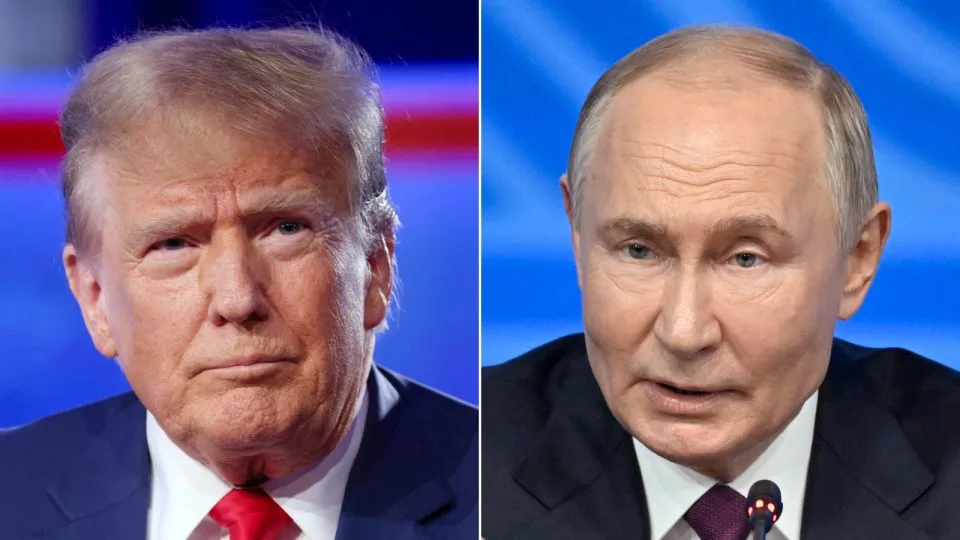The prospect of direct peace negotiations between Russia and Ukraine has once again surfaced, but the Kremlin has made it clear that no immediate summit is on the horizon. While U.S. President Donald Trump continues to encourage talks between Russian President Vladimir Putin and Ukrainian President Volodymyr Zelensky, officials in Moscow remain cautious, emphasizing that any meaningful dialogue must be carefully prepared. The stakes remain high as the war in Ukraine stretches into its third year, with international leaders pressing for a diplomatic breakthrough.
Trump’s Push for Direct Negotiations
President Trump has repeatedly voiced his belief that direct negotiations between Putin and Zelensky could mark a turning point in the war. While he initially suggested a three-way summit including himself, he now insists that an initial meeting between the two leaders would be “better” without external mediation. Trump stated that he would only join “if necessary,” leaving the responsibility to Moscow and Kyiv to determine the next steps. Despite these calls, the Kremlin remains hesitant, signaling that discussions must begin with technical experts and progress gradually.
The international community continues to watch closely, particularly as NATO explores new strategies for security in Eastern Europe. NATO’s official site provides further details on how the alliance is adapting to evolving threats (nato.int).
Moscow’s Strategic Ambiguity
For Russia, downplaying the likelihood of an immediate summit serves a dual purpose. On one hand, it avoids raising expectations that could later collapse. On the other, it allows the Kremlin to maintain flexibility while keeping the diplomatic process under its control. Foreign Minister Sergei Lavrov reiterated that a structured and gradual approach is the only path forward, avoiding what he called “a meeting for the sake of a meeting.”
Meanwhile, the conflict on the ground shows no signs of slowing. Ukrainian officials reported strikes on infrastructure in Odesa and Sumy, highlighting the ongoing human cost of the war. The United Nations continues to call for restraint and dialogue, stressing the importance of international law and humanitarian protection (un.org).
The Road Ahead for Peace Efforts
Although some analysts remain skeptical, there is cautious optimism that recent discussions have shifted the tone of international diplomacy. European leaders have emphasized that any long-term settlement must include robust security guarantees for Ukraine, ensuring its sovereignty is not compromised. President Zelensky has consistently argued that Ukraine cannot accept proposals that undermine its independence, particularly suggestions that he travel to Moscow for talks.
The European Union has also underscored its support for Ukraine, committing to long-term security and economic partnerships. More information on these commitments can be found on the official EU website (europa.eu).
At the same time, economic and energy implications of the conflict continue to ripple across global markets. The International Monetary Fund has warned of persistent instability in trade and energy supplies if peace remains elusive (imf.org).
Whether Trump’s push for talks can lead to tangible progress remains uncertain. For now, the Kremlin insists on a measured process, while Ukraine demands guarantees that its sovereignty will not be negotiated away. What emerges from the coming months could shape not only the trajectory of the war but also the future security order of Europe.







